Literacy Instruction
Lower School students experience student-centered, differentiated literacy instruction daily as we aim to produce proficient, enthusiastic, lifelong readers and writers.
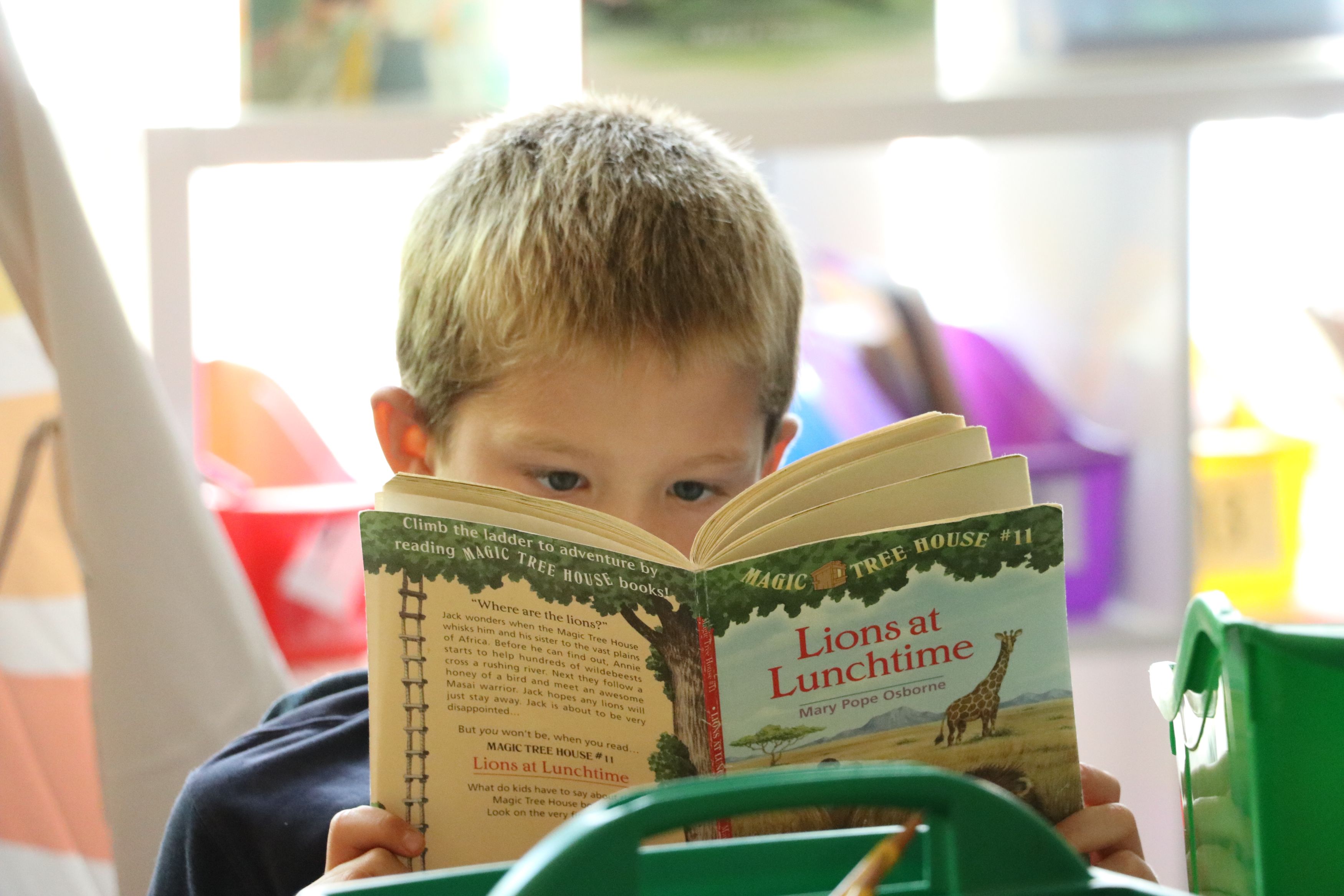
Reading, writing, and foundational literacy skills instruction have separate units of study for each grade level and are designed to support each other in content, habits, strategies, and skills. Students immerse themselves in “just-right” books and write stories from the heart of their own experiences and noticing.
Mathematics
Trinity Episcopal School develops mathematicians in Kindergarten through Grade 5 using the Math in Focus 2020 curriculum, which is the U.S. edition of the highly effective Singapore Math approach. Leveraging global best practices and research, the curriculum uses powerful visual models, engaging hands-on activities, and a consistent K–8 pedagogical framework.
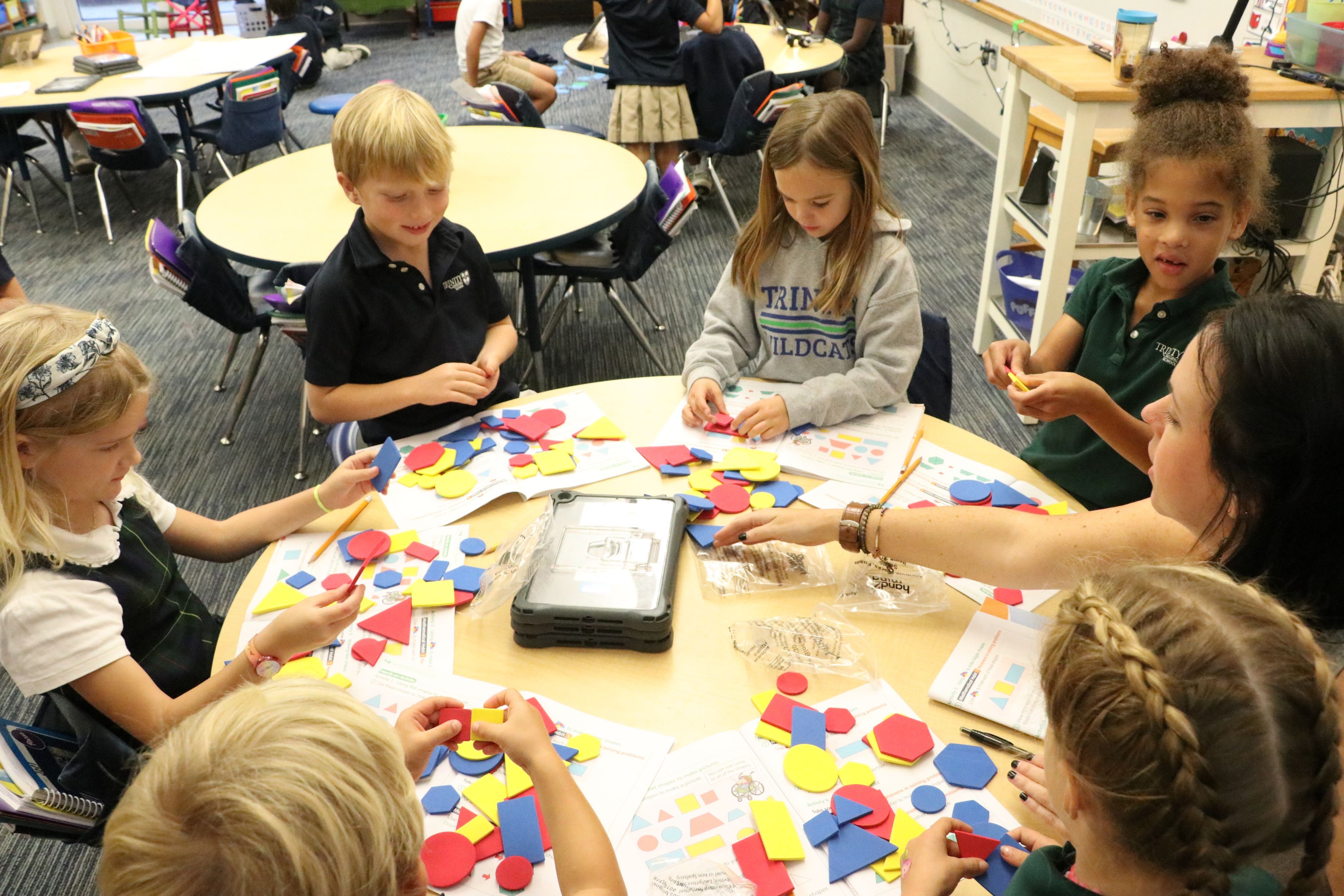
Lessons emphasize a concrete-pictorial-abstract (CPA) approach, which allows students to gain deeper conceptual understanding. Visual models, including bar models, help students develop the ability to visualize mathematical situations, which is key to becoming a successful problem solver. The program also features an online learning platform with assessments, e-books, videos, and games.
Science
Trinity Episcopal School's Lower School science program utilizes the Amplify Science units of study as its core curriculum with a goal to create scientific thinkers who eagerly investigate, research, explore and record information about the world around them.
Our hands-on, inquiry-based approach to learning weaves and spirals scientific content in various disciplines and grade levels allowing students to utilize the scientific method to experiment, construct, dissect and create models to prove their hypotheses.
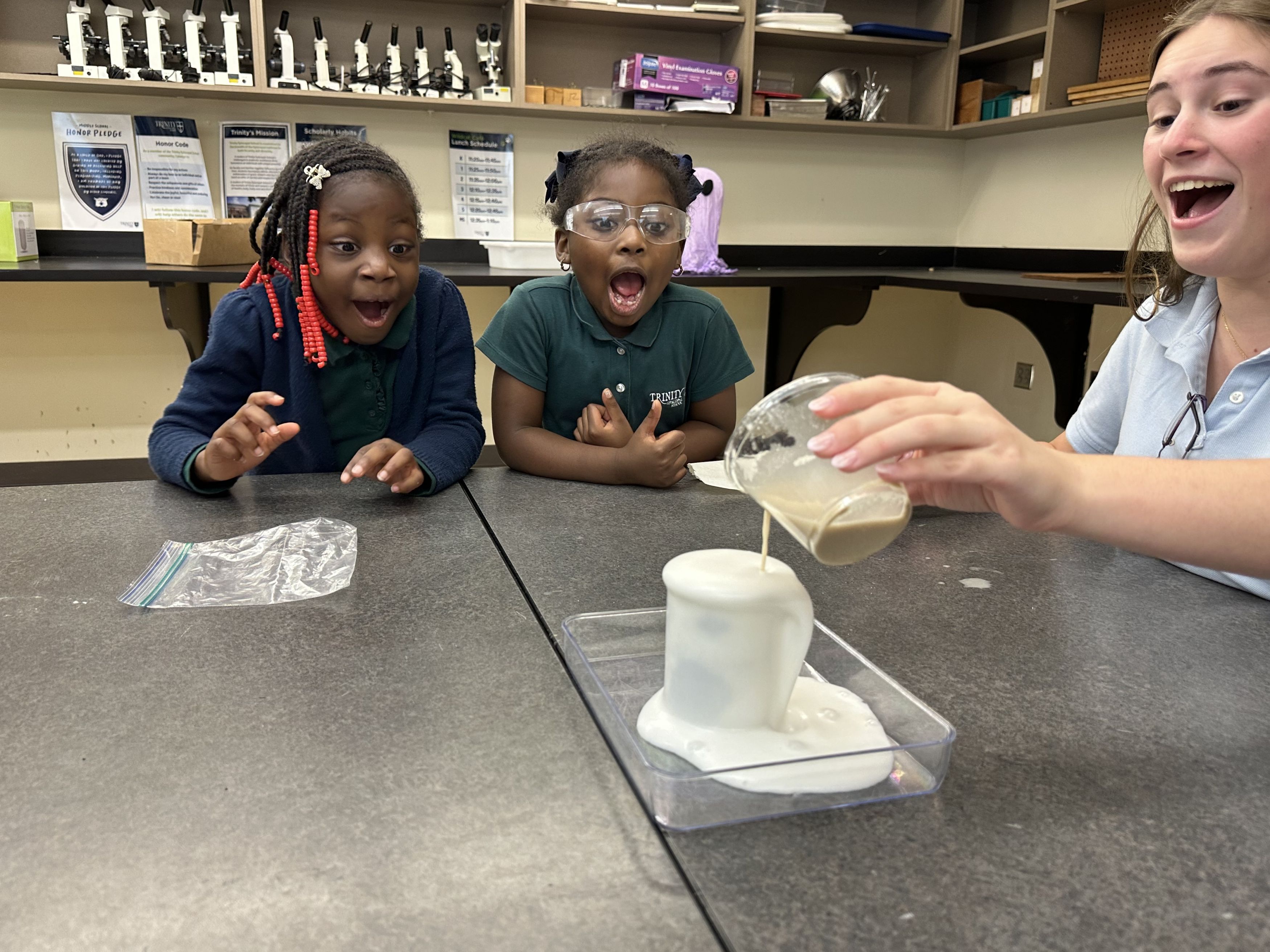
Throughout their nine years at Trinity Episcopal School, students are introduced to earth science, physical science, life science, astronomy, physics, chemistry, microbiology, genetics, physiology, and the study of our urban environment.
Social Studies
Lower School students explore civics, economics, geography, and history through problem-based learning units and inquiry work. Many of these units, especially in the lower grades, are known as Storypaths - units in which students take on roles as characters in a story and become stakeholders in a critical situation, perhaps scientists studying an oil spill in an ocean, knights protecting a medieval castle under siege, or members of the Boston Tea Party struggling for independence during the American Revolution. This approach capitalizes on the principle that, through problem solving and constructing their own knowledge and understanding of the world, as well as having a real "stake" in the problem, students engage in more meaningful and memorable learning.
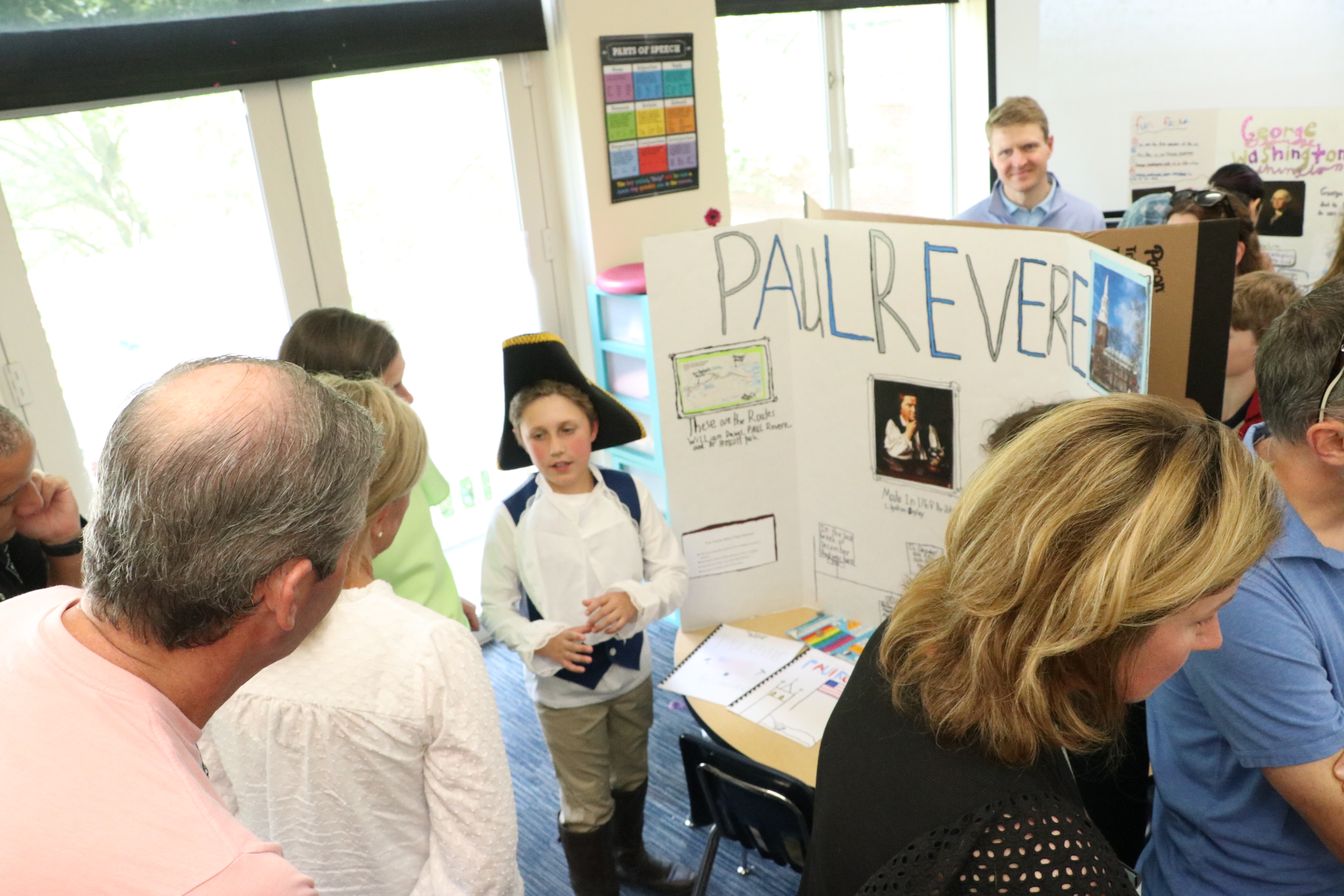
Social studies work at Trinity is often integrated with students' reading and writing, and always keeps at its core the development of deep and enduring understandings, concepts, and skills as preparation for democratic decision-making.
Foundational Skills Instruction
Across the primary grades K-2, teachers engage in whole-group instruction in foundational skills, including phonemic and phonological awareness. They also administer formative and summative assessments in reading, writing, and phonics to provide additional differentiation. These flow from one grade level to the next using a developmental approach for the scope and sequence.
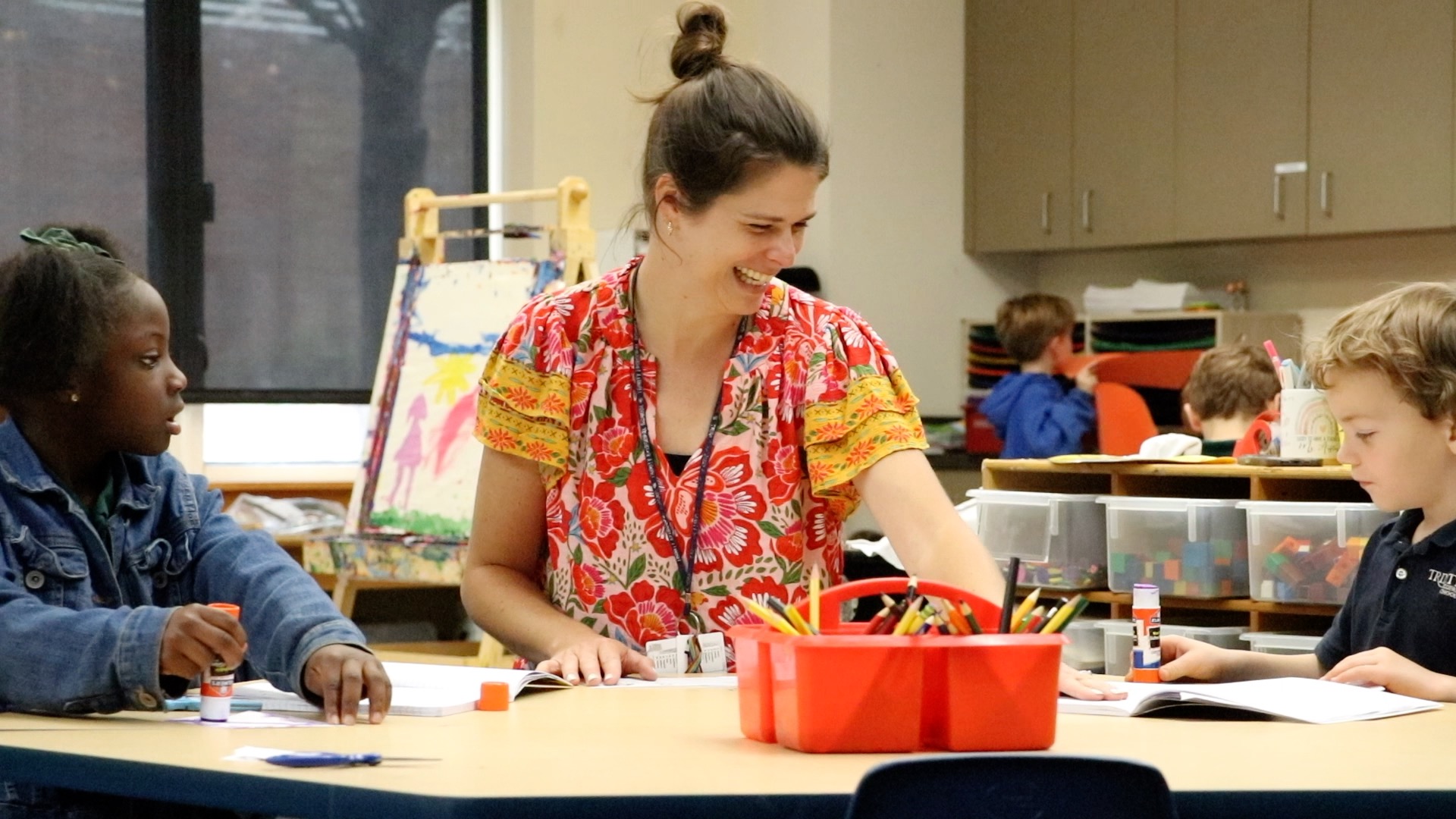
Word study continues through Grade 5 at Trinity and encompasses the specific and intentional instruction around phonics, morphology, spelling, vocabulary, grammar, and writing mechanics. Some of this work happens naturally within the context of reading and writing workshops, but additional stand-alone time is devoted to both whole-class instruction and differentiated small-group or one-on-one work led by both teachers in a classroom.
